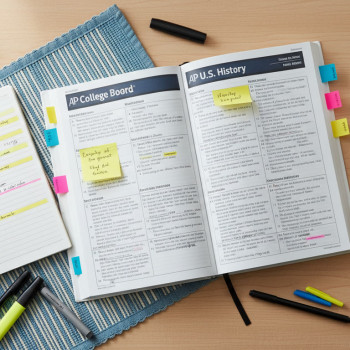Introduction: Why This Decision Matters
Every parent who’s raised a teenager in Hong Kong has probably felt that familiar mixture of pride and anxiety: proud of achievements, anxious about the next big step. Choosing between the Hong Kong Diploma of Secondary Education (DSE) and the U.S. Advanced Placement (AP) pathway isn’t just about picking exams — it’s about shaping a student’s academic experience, university options, and even confidence. This guide is written for you: practical, warm, and full of realistic advice so you can navigate the DSE vs AP conversation with clarity and calm.

Quick Overview: What Are DSE and AP?
At a glance, these two systems look different because they grew from different educational traditions.
Hong Kong DSE (Diploma of Secondary Education)
The DSE is Hong Kong’s publicly recognized secondary leaving qualification. It is curriculum-driven and usually taken at the end of secondary education. Students sit centrally administered examinations across a set of subjects. The DSE is tightly woven into local university admission processes and local scholarship criteria.
AP (Advanced Placement)
The AP program, managed by the College Board, offers college-level courses and exams that high school students can take individually or as part of an AP class. AP is modular: students pick subject exams (e.g., AP Calculus AB, AP Biology, AP U.S. History) and earn scores that many international and U.S. universities consider for credit, placement, or admission advantage.
How Families Typically Choose
There isn’t a one-size-fits-all answer. The decision usually depends on three overlapping factors:
- University goals: Where does your child want to study (Hong Kong, UK, US, Canada, Australia, or elsewhere)?
- Student strengths: Are they stronger in breadth across many subjects, or do they thrive with deep dives into a few?
- School offerings and logistics: Does your school offer AP classes or robust DSE preparation? Can your child manage the schedule?
Most parents benefit from approaching this decision strategically: assess the student’s academic personality, check target universities’ admission and credit policies, and craft a timeline that reduces stress while preserving flexibility.
Direct Comparison: DSE vs AP
The following table lays out the major differences in a way that’s easy to scan. Use it as a starting point, not as the final verdict — context matters.
| Feature | DSE | AP |
|---|---|---|
| Structure | Summative national exams across multiple subjects at the end of secondary school. | Individual subject exams available anytime student is ready; modular and flexible. |
| Assessment Style | Combination of papers with local exam formats, emphasis on breadth and standardized marking. | College-level exam focused on subject mastery; often expects conceptual depth and analytical skills. |
| University Recognition | Essential for local Hong Kong universities and widely used in regional admissions. | Used globally—especially valuable for U.S. admissions and for universities that grant credit/placement for AP scores. |
| Flexibility | Lower — fixed schedule and subject set; pivoting late is more difficult. | Higher — students can pick exams year-by-year, retake certain exams, and spread them across semesters. |
| Depth vs Breadth | Encourages breadth with required core subjects; depth within chosen electives. | Encourages depth in chosen subjects that may align with intended major or interest. |
| Preparation Path | Curriculum typically delivered within local schools with DSE-focused coaching. | May be through school AP classes, independent study, or one-on-one tutoring; AP Classroom and resources are widely used. |
How Universities See Each Pathway
Universities look for readiness, not labels. But the pathway your child chooses will shape how admissions officers and registrars interpret transcripts and test results.
Local Hong Kong Universities
Local institutions weigh DSE heavily because it’s the standard credential. For many Hong Kong students aiming for the University of Hong Kong, CUHK, or HKUST, a strong DSE profile remains the most direct route, especially when local scholarship or quota systems are involved.
International Universities (U.S., Canada, UK, Australia)
AP exams are particularly useful for U.S. admissions and to secure college credits or advanced placement. UK universities typically focus on A-Level or IB equivalents, but AP results can still strengthen an application if used strategically. Many universities worldwide will accept AP scores for placement or credit, but policies vary, so it’s important to check each school’s published criteria.
Which Path Fits Your Child’s Strengths?
Below are common student profiles and how each pathway might suit them.
When DSE Might Be the Better Fit
- The student plans to apply primarily to Hong Kong universities and values a streamlined, familiar path.
- They perform strongly across a range of subjects and prefer a single culminating exam season.
- They thrive with tightly structured classroom instruction and local exam preparation.
When AP Might Be the Better Fit
- The student aims for U.S. universities or international programs that recognize AP credit.
- They want to showcase particular strengths (e.g., calculus, physics, computer science) with college-level evidence.
- They prefer flexibility to build a stronger subject-specific profile over time rather than a single final exam season.
Practical Questions Parents Ask (and Straightforward Answers)
Can a student do both DSE and AP?
Yes. Many students combine DSE subjects with selective AP exams to broaden their options: for example, taking core DSE subjects while preparing for AP Calculus or AP English Literature to strengthen a U.S.-focused application. This route requires careful time management, but it can be a strategic way to keep doors open.
Which is harder?
“Harder” depends on the student. The DSE’s difficulty often lies in breadth and local exam techniques. AP exams demand depth and college-level thinking in specific subjects. A student who enjoys in-depth study of a subject may find AP easier; one who prefers predictable curriculum pacing may excel in DSE.
Do AP scores give a real advantage to Hong Kong students applying overseas?
Yes—AP results can demonstrate readiness for college-level work, help secure placement or credits, and can strengthen a competitive application when paired with strong extracurriculars and essays. However, AP is not the only pathway; standardized admissions rely on a composite of achievements.
Study Planning: A Parent-Friendly Timeline
Start with a two-year plan that can be adapted. Here’s a sample timeline for a student in Secondary 4–6 (S4–S6) thinking about both pathways.
- End of S4: Identify strengths and target universities. Decide whether to pursue DSE, AP, or a hybrid approach.
- S5 Year: If AP is chosen, begin AP subject prep (AP Classroom resources, practice exams). If DSE, focus on curriculum mastery and past papers. Start building extracurricular profile and personal statement material.
- S6 Year: Intensify exam preparation. Simulate test conditions regularly. For AP, register strategically with testing windows; for DSE, follow school timelines and work with teachers on exam techniques.
How to Support Your Child Without Taking Over
Parent support is a delicate balance between encouragement and pressure. Here are compassionate, practical ways to help:
- Be the planner, not the performer: Help create a study schedule and arrange logistics so your child can focus.
- Encourage small, consistent habits (weekly review, timed practices) rather than marathon cramming.
- Normalize setbacks: A poor practice exam is a data point, not a disaster. Use it to refine the plan.
- Celebrate process milestones as well as grades—completing a mock exam, improving a concept, or keeping a study streak.
How Tutoring Can Help — and What Good Tutoring Looks Like
Many families in Hong Kong turn to tutors as part of their strategy. But effective tutoring is not just extra repetition; it’s targeted, diagnostic, and growth-minded.
Key Features of High-Impact Tutoring
- Personalized assessment to pinpoint skill gaps and misconceptions.
- Tailored study plans that prioritize the highest-impact topics and exam skills.
- Active practice with feedback — timed sections, past paper drills, and question-level coaching.
- Emotional support and study-skills coaching (time management, exam mindset).
For families exploring options, Sparkl’s personalized tutoring can be a natural fit: 1-on-1 guidance, tailored study plans, expert tutors familiar with both DSE and AP demands, and AI-driven insights to track progress and adjust pacing. When placed naturally into a student’s schedule, these supports reduce anxiety and boost confidence.
Sample Comparison: Subject Choices and Strategies
Here are a few concrete scenarios showing how families tailor subject choices depending on goals.
Student A — Aiming for HK Local Universities
- Focus: Strong performance in DSE core subjects (Chinese, English, Mathematics, and key electives).
- Strategy: Prioritize past paper practice, local-school exam techniques, and subject-specific workshops; optional AP subject only if it enhances a unique profile.
Student B — Aiming for U.S. STEM Programs
- Focus: AP Calculus (AB or BC), AP Physics, AP Computer Science, strong SAT/ACT planning if required.
- Strategy: Take AP exams in subjects aligned with intended major, build portfolio projects (coding, research), and use AP scores for college credit/placement.
Student C — A Balanced International Applicant
- Focus: Mix of DSE strengths with a couple of APs (e.g., AP English and AP Biology) to demonstrate both breadth and depth.
- Strategy: Use APs to highlight standout subjects while keeping a strong DSE profile for local credibility.
Real-World Tips: Registration, Timelines, and Logistics
Practical details can trip up even the best-laid plans. A few pointers:
- AP registration windows and test dates are fixed; make sure your child’s school or testing center can administer the chosen exams.
- AP exam fees and refunds vary by year — block the budget early and check deadlines for ordering exams.
- DSE schedules and school-specific exam policies are usually set well in advance; align practice mocks with official timelines to build stamina.
Measuring Progress: What to Track
Don’t get lost in endless hours. Track signals that matter:
- Practice exam scores over time (focus on trend, not single scores).
- Mastery of core skills: essay structure, problem-solving steps, lab analysis, and time management.
- Emotional indicators: stress levels, sleep, and motivation—these predict sustainable performance.
Making the Final Call: A Quick Decision Roadmap
When you need to make a choice, here’s a compact checklist to run through with your child and their guidance counselor:
- Where do they want to study? (Prioritize that country’s preferred qualifications.)
- What subjects do they love and want to pursue at university?
- Does the school offer good AP support, or is the DSE pathway better resourced locally?
- Can they balance social life, wellbeing, and study demands?
- Have you built contingency options (e.g., hybrid approach, retake strategies)?
Final Thoughts: Support, Not Pressure
The right pathway is the one that fits your child’s strengths, aspirations, and wellbeing. Parents often worry that choosing one route closes doors — but with thoughtful planning, transparent conversations, and the right supports (like focused one-on-one tutoring, tailored study plans, and smart use of practice resources), students can stay agile and confident.
If you’re unsure where to begin, start small: map university targets, list subjects your child enjoys, and schedule one diagnostic session with a trusted tutor or guidance counselor. Personalized tutoring, including 1-on-1 guidance and AI-informed progress tracking, can transform uncertainty into a clear, step-by-step plan your child believes in.
Next Practical Steps
- Set a short family meeting to list top three university destinations and why.
- Book a diagnostic test for key subjects to discover strengths and gaps.
- Design a six-month study plan with weekly goals and at least one mock exam per month.

Remember: whatever the path, your presence, encouragement, and steady planning matter more than the label on the final certificate. With the right approach, your child will develop the resilience and skills that universities value — and the confidence to thrive beyond exams.
A Gentle Offer
If you’d like help translating this into a tailored study plan for your child—one that blends exam tactics with wellbeing and real progress tracking—consider booking a diagnostic session. Personalized, expert guidance can shorten the learning curve and keep everyone sane during exam season.
Closing
Choices feel heavy because they come with hopes attached. But they also open opportunities. Whether your child follows DSE, AP, or a well-crafted combination, thoughtful planning, consistent practice, and targeted support will make the difference. You don’t have to figure it out alone—steady help and a clear plan can turn anxiety into achievement.

















No Comments
Leave a comment Cancel